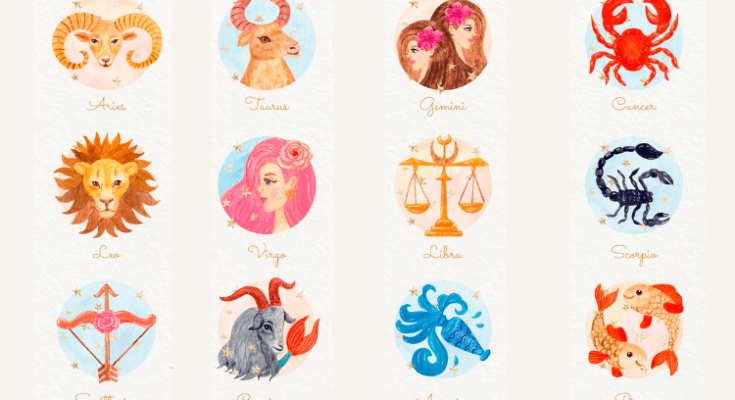Introduction
The fascination with astrology and zodiac signs has captivated humanity for centuries. From predicting personalities to understanding compatibility, astrology offers insights into various aspects of life. However, amidst the allure of zodiac signs, there’s also the intriguing question of which sign may be considered the “ugliest.” In this article, we embark on a journey to explore the complexities of beauty within the realm of astrology, shedding light on the factors that shape perceptions and debunking common stereotypes.
Exploring Zodiac Signs
Zodiac signs, determined by the positions of celestial bodies at the time of one’s birth, are believed to influence personality traits and behaviors. These signs, categorized into twelve distinct astrological houses, offer unique insights into individual characteristics and tendencies. Let’s delve deeper into the diverse traits associated with each zodiac sign.
Understanding Personality Traits
Each zodiac sign is associated with specific personality traits, strengths, and weaknesses. For example, Aries individuals are often characterized as confident and assertive, while Taurus individuals are known for their practicality and determination. Understanding these traits provides a foundation for exploring perceptions of beauty within astrology.
Influence of Planetary Alignments
The alignment of planets at the time of birth is believed to shape the core characteristics of each zodiac sign. For instance, the influence of Mars on Aries contributes to their bold and adventurous nature, while the influence of Venus on Libra fosters harmony and diplomacy. Exploring these planetary influences adds depth to our understanding of zodiac signs.
Cultural Interpretations
Cultural interpretations play a significant role in shaping perceptions of beauty within astrology. Different cultures may prioritize certain traits over others, influencing how each zodiac sign is perceived. For example, cultures that value strength and assertiveness may view Aries in a more positive light, while cultures emphasizing grace and elegance may favor Libra.
What Makes a Sign Appear “Ugly”?
The concept of ugliness within astrology extends beyond physical appearance to encompass a combination of personality traits, behaviors, and societal perceptions. Certain zodiac signs may be labeled as “ugly” based on stereotypes or misconceptions, highlighting the subjective nature of beauty within astrology.
Breaking Down Stereotypes
Stereotypes surrounding certain zodiac signs contribute to perceptions of ugliness. For example, Scorpios are often portrayed as secretive and intense, leading to misconceptions about their character. Similarly, Capricorns may be perceived as overly serious or rigid, overlooking the depth and complexity of their personalities.
Debunking Misconceptions
Debunking these stereotypes is essential to appreciate the diversity and individuality of each zodiac sign. While Scorpios may possess intensity, they also embody passion and resilience. Likewise, Capricorns’ seriousness is balanced by their ambition and dedication. By challenging misconceptions, we can embrace the richness of astrological diversity.
Celebrating Individuality
Every individual is unique, regardless of their zodiac sign. Embracing this diversity fosters acceptance and understanding, allowing us to celebrate the intricacies of human nature. Rather than adhering to rigid stereotypes, we can recognize the beauty in individual differences and appreciate the complexity of each zodiac sign.
Analyzing the Perception of Beauty
Beauty standards vary across cultures and are influenced by a myriad of factors, including media, upbringing, and societal norms. These standards shape perceptions of attractiveness within astrology, influencing how each zodiac sign is perceived in terms of beauty.
Cultural Influences
Cultural influences play a significant role in shaping beauty standards within astrology. For example, cultures that value assertiveness and independence may view Aries individuals as attractive, while cultures emphasizing grace and refinement may favor Libras. Understanding these cultural nuances provides insights into the diverse perceptions of beauty within astrology.
Media Representation
Media portrayal of zodiac signs can also impact perceptions of beauty. For instance, popular culture may perpetuate stereotypes about certain signs, shaping public opinion. By critically analyzing media representations, we can discern the underlying biases and challenge preconceived notions of beauty within astrology.
Redefining Beauty
Redefining beauty within astrology involves embracing diversity and challenging traditional beauty standards. Rather than adhering to narrow definitions of attractiveness, we can celebrate the unique qualities of each zodiac sign. By promoting inclusivity and acceptance, we foster a more holistic understanding of beauty within astrology.
The “Ugliest” Zodiac Signs
Despite the subjective nature of beauty, there are prevailing stereotypes surrounding certain zodiac signs. These stereotypes contribute to the perception of certain signs as less attractive, perpetuating misconceptions and undermining the diversity of astrological traits.
Stereotypical Misconceptions
Stereotypical misconceptions about certain zodiac signs contribute to their perceived ugliness. For example, Scorpios may be viewed as manipulative or vindictive, while Leos may be seen as arrogant or attention-seeking. These stereotypes oversimplify complex personality traits, distorting perceptions of beauty within astrology.
Challenging Perceptions
Challenging perceptions of ugliness within astrology involves confronting stereotypes and embracing the complexity of each zodiac sign. By acknowledging the depth and nuance of astrological traits, we can move beyond superficial judgments and appreciate the beauty inherent in diversity.
Embracing Diversity
Embracing diversity within astrology requires recognizing the value of individual differences and celebrating the unique qualities of each zodiac sign. Rather than adhering to rigid beauty standards, we can cultivate a more inclusive and compassionate outlook, fostering acceptance and understanding.
Conclusion
In conclusion, perceptions of beauty within astrology are complex and multifaceted, influenced by a myriad of factors including personality traits, cultural norms, and societal perceptions. While stereotypes may perpetuate misconceptions about certain zodiac signs, challenging these notions allows us to embrace the richness of astrological diversity. By celebrating individuality and promoting inclusivity, we can redefine beauty within astrology, fostering a deeper understanding and appreciation of the intricate tapestry of human nature





